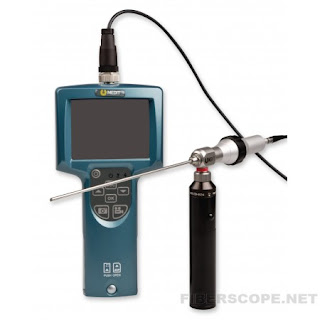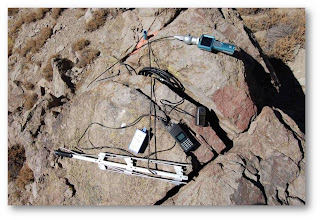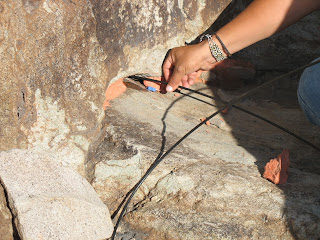Dr. Stanley Fox and Enrique Santoyo-Brito from Oklahoma State University looked for a videoscope to assist them in their field work regarding care of young leopard lizards by adult leopard lizards in deep rock crevices in Chile. They decided to use Rigel 2-way articulating video borescope for their research, as they wanted to visualize rock refuges, used by leopard lizards, and take video and still images of the lizards inside the refuges. These refuges are located in natural rock formations with small entry points and little natural light. The Rigel videoscope was a good fit with its articulated probe and built in LED lights to allow them to get a good look at the larger areas in the rock formations and locate the lizards. Please look at some photos in the deep rock crevices.
For information - Rigel Videoscope consists of Monitor base with recording function and high resolution screen and flexible probe. Probe diameter can be 3.9 mm or 5.5 mm, and length from 1 to 3 meters. Probe can be bent in 2 directions and turn around, which makes possible about 360 degrees observation. High resolution of image, convenient design and portability make this videoscope a nice choice for scientifc research works, as well as for different industrial applications: automotive, aviation, plumbing, security and many others.
More details about this and similar videoscopes are here.
The equipment: Videoscope Rigel, Telemetry and Remote Query for PIT tags
Inserting Probe of Videoscope Rigel into area of refuges in rock formations. Please note that only thin diameter of probe can assist here.
Lizard's face via video borescope






